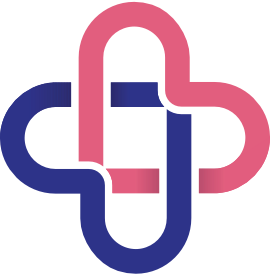Key Takeaways
Improving your sleep hygiene means creating consistent routines, a supportive sleep environment, and daily habits that make quality rest more likely. From sticking to a regular bedtime to dimming lights before sleep and managing tech use in the evening, small changes can lead to big improvements in how you feel, think, and function. Quality sleep is not a luxury. It is a foundation for good health at every age.
The Science of Sleep

Understanding the sleep cycle and the role of hormones like melatonin can help us appreciate the impact of sleep deprivation and the importance of good sleep hygiene. It's like understanding why your car needs oil - without it, things start to break down. Our sleep cycle is like a well-choreographed dance: starting with light sleep, moving into deep sleep, and finally hitting the REM (Rapid Eye Movement) stage, where dreams occur.
Melatonin is the superstar of sleep. This hormone, produced in the pineal gland, is like the body's natural sandman, helping us drift off to dreamland and wake up ready to seize the day. It might come as a surprise, but the best way to have your body produce melatonin is by optimizing your sleeping habits.
The Pillars of Sleep Hygiene

The pillars of sleep hygiene are like the three musketeers of good sleep: a regular sleep-wake schedule, a conducive sleep environment, and healthy pre-sleep routines.
Regular Sleep-Wake Schedule
Consistency is key. Going to bed and waking up at the same time every day helps regulate our body's internal clock, leading to better sleep quality. It's like training your body to become a world-class sleeper.
Sleep Environment
Your sleep environment should be like a cave: dark, quiet, and cool. There’s some real science behind this and it has to do with your suprachiasmatic nucleus, the part of your brain that controls the sleep-wake cycle. While we’re no longer living in caves, from an evolutionary standpoint it wasn’t really that long ago that we were. Our brains are designed so that when it gets dark and cold it signals sleep time, conversely when it gets light and warm it means it’s time to get up. The goal is to approximate those conditions.
Pre-Sleep Routines
Healthy pre-sleep routines are like a warm-up before the big game. Your job is to try to get as relaxed as possible and avoid anything that will make you more alert. This can include activities like reading (no, not your work emails), meditation, or light stretching.
Digging Deeper: Key Components of Sleep Hygiene
To fully understand sleep hygiene, we need to delve deeper into its key components: maintaining a consistent sleep schedule, creating the ideal sleep environment, and building healthy pre-sleep routines. It's like peeling back the layers of an onion, but without the tears.
Importance of a Consistent Sleep Schedule
Consistency in sleep and wake times is like having a reliable alarm clock. It helps our body's internal clock stay in sync. For those dealing with shift work or jet lag, gradual adjustments to your sleep schedule can help your body adapt and maintain good sleep hygiene.
Creating the Ideal Sleep Environment
The ideal sleep environment is one that promotes relaxation and is conducive to sleep. As discussed earlier, this involves managing light and darkness, as our bodies are designed to sleep in the dark and wake in the light. Blackout curtains or eye masks can help manage light levels. Temperature also plays a role, with a cooler room often promoting better sleep. Comfortable bedding and noise control, such as using earplugs or a white noise machine, can also contribute to a better sleep environment-a few items many a caveman only wished for.
Building Healthy Pre-Sleep Routines
Healthy pre-sleep routines can help signal to your body that it's time to sleep. This can include managing food and drink, avoiding large, heavy meals as well as stimulants like caffeine and nicotine close to bedtime. You might also want to avoid consuming a large of amount of fluids before bed to avoid being woken up by your bladder. Physical activity, such as light stretching or yoga, can help promote sleep, but intense exercise should be avoided close to bedtime. Relaxation techniques, reading, meditation, or listening to calming music, can also help prepare your body for sleep.
Modern Challenges to Sleep Hygiene

In the modern world, technology, stress, and sleep disorders pose significant challenges to sleep hygiene. The blue light emitted by screens can interfere with melatonin production, disrupting our sleep-wake cycle. As an experiment you can try discontinuing screens 5 minutes before bed, and increasing this interval to see if this impacts falling/staying asleep as the impact will be different from person to person. Stress can lead to insomnia, while sleep disorders like sleep apnea can disrupt sleep quality; treating these issues can facilitate better sleep.
Tailoring Sleep Hygiene Practices
Sleep hygiene practices may need to be tailored for different age groups, including children, adolescents, adults, and seniors. Each group has unique sleep needs and challenges, and understanding these can help in establishing effective sleep hygiene practices.
Debunking Sleep Myths
Common sleep myths, such as the ability to catch up on lost sleep or the idea that less sleep boosts productivity, can hinder good sleep hygiene. Sleep is not a bank, and lost sleep cannot be fully recovered. Less sleep does not lead to increased productivity; in fact, it can lead to decreased productivity and increased health risks.
Conclusion: The Lifelong Journey of Sleep Hygiene
Sleep hygiene is a lifelong journey. By understanding its importance and practicing it consistently, we can significantly improve our health and wellbeing.




.webp)